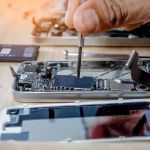- what-to-do-if-your-keyboard-or-mouse-stops-working
- 1-identifying-the-root-cause-of-hardware-failure
- 2-basic-troubleshooting-for-wired-and-wireless-devices
- 3-operating-system-responses-and-driver-checks
- 4-battery-power-usb-ports-and-signal-interference
- 5-when-to-seek-professional-repair-or-replacement
- 6-real-user-scenarios-and-lessons-learned
What to Do If Your Keyboard or Mouse Stops Working
It’s the kind of problem that always seems to happen at the worst possible moment—your keyboard or mouse stops working. Whether you’re in the middle of a Zoom meeting or racing against a deadline, a sudden input failure can feel catastrophic. But don’t panic. Most issues are solvable with a little patience and the right steps. In this guide, we’ll walk you through how to troubleshoot, repair, or replace your devices with confidence. And if you need dependable solutions or professional support, Computer Repair is a trusted name in diagnostics, parts, and recovery services for everyday tech challenges.
1. Identifying the Root Cause of Hardware Failure
1.1 Was It Sudden or Gradual?
The timeline of failure tells you a lot. A keyboard that gradually becomes unresponsive may be suffering from dust buildup or worn-out contacts. A mouse that stops suddenly after a system update might be a driver issue. Start by asking: What changed just before the problem started?
1.2 Check the Obvious—But Don’t Assume
It sounds basic, but double-check your connections. Is the USB plugged in fully? Are the batteries dead? Have you recently spilled something? The best troubleshooters don’t skip the obvious—they start there. A surprising number of “dead” keyboards just had loose cables or drained batteries.
2. Basic Troubleshooting for Wired and Wireless Devices
2.1 Wired Devices: Test Another Port
If your wired keyboard or mouse stops working, try plugging it into a different USB port. If it works in another port, the issue might be with the computer’s hardware, not the device. Try rebooting the system after switching ports to refresh connections.
2.2 Wireless Devices: Re-Pair and Replace Batteries
Wireless mouse or keyboard acting up? Replace the batteries—even if they seem fine. Next, unpair and re-pair the device via Bluetooth or wireless dongle. Sometimes, minor interference or a power-saving timeout can confuse the signal. Also check for competing devices using the same frequency.
2.3 Test with Another Computer
Plug your device into another computer. If it works there, your original system likely has a software or port issue. If not, the device itself may be faulty.
3. Operating System Responses and Driver Checks
3.1 Windows Device Manager
On Windows, press Win + X and open Device Manager (use touchscreen or an on-screen keyboard if necessary). Look for warnings under "Keyboards" or "Mice and other pointing devices." Right-click and choose “Update Driver” or “Uninstall Device” then restart the PC. Windows will attempt to reinstall the default drivers.
3.2 macOS System Report and Preferences
On a Mac, navigate to System Information (under "About This Mac") and check the USB or Bluetooth sections. If your device doesn’t appear, it’s not being recognized. Resetting the SMC (System Management Controller) can sometimes restore functionality for peripheral devices.
3.3 Recent Updates or Software Conflicts
If the issue started after a software update, rollback the change or use System Restore on Windows. Third-party software like gaming overlays or VPNs can sometimes interfere with device detection. Boot in Safe Mode to check whether background programs are the issue.
4. Battery Power, USB Ports, and Signal Interference
4.1 Weak or Draining Batteries
Modern peripherals may seem like they have long battery lives—but performance often degrades before the battery fully dies. Always keep spare batteries nearby. Some rechargeable models require a full overnight charge to function correctly after draining.
4.2 USB Port Power Limitations
Laptops and desktops can limit power to certain ports to conserve energy. If your device is flickering or inconsistent, try a powered USB hub or switch ports. USB 3.0 ports (often blue inside) provide more consistent power for high-performance mice and keyboards.
4.3 Wireless Signal Interference
Wi-Fi routers, smart home devices, and even microwave ovens can interfere with 2.4GHz wireless peripherals. Try moving the dongle closer to the device using a USB extension cable, or switch to Bluetooth if available. Avoid placing the receiver behind metal objects or inside drawers.
5. When to Seek Professional Repair or Replacement
5.1 Signs of Permanent Hardware Failure
If you see flickering lights, smell burning plastic, or hear clicking sounds inside the device—it’s time to retire it. Physical damage from drops or spills usually can’t be undone at home. In those cases, consult a technician or visit a local repair expert like Computer Repair for diagnosis or hardware replacement.
5.2 Warranty and Manufacturer Support
Many peripherals come with 1–2 year warranties. Don’t forget to check if your device is covered—you might be eligible for a free replacement. Brands like Logitech and Microsoft offer quick turnaround for registered customers with proof of purchase.
5.3 Professional Diagnosis
If you’re unsure whether it’s a port, driver, or hardware issue, bringing your machine to a repair center can save hours of frustration. At Computer Repair, trained technicians can test devices, clean ports, reinstall drivers, and provide instant swap-outs if needed.
6. Real User Scenarios and Lessons Learned
6.1 Jake’s Disappearing Keyboard (Solved with a USB Hub)
Jake, a freelance designer, was losing his wireless keyboard connection every 30 minutes. After testing drivers and batteries, he discovered the port wasn’t supplying stable power. A powered USB hub fixed the issue immediately. “It was such a small fix, I couldn’t believe I’d missed it,” he says.
6.2 Tanya’s MacBook Mouse Crisis (Driver Conflict)
Tanya’s Bluetooth mouse stopped working after a new printer driver was installed. The fix? She deleted the printer software, restarted her Mac, and the mouse came back. “It taught me that sometimes the issue isn’t where you think it is,” she reflects.
6.3 Jordan’s Gaming Setup Gone Dark (Solved at Repair Shop)
Jordan’s gaming keyboard stopped lighting up and typing after a coffee spill. After trying canned air and letting it dry for two days, it still didn’t work. A quick visit to Computer Repair revealed shorted circuits—repair wasn’t possible, but they helped him upgrade to a better mechanical model within his budget.






























